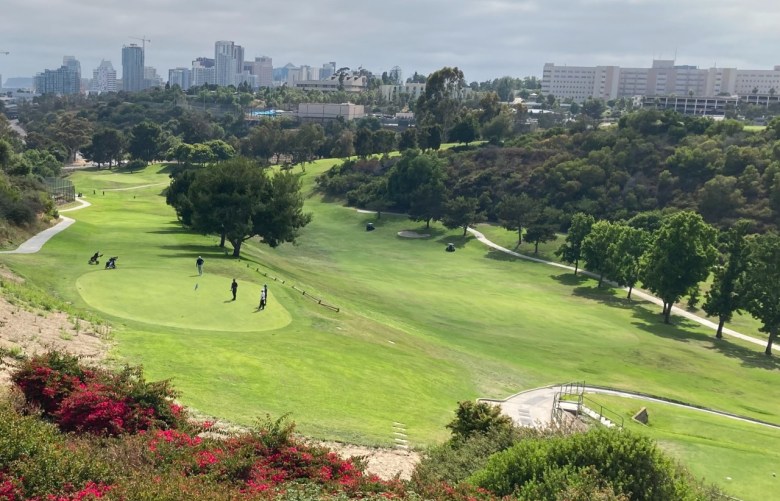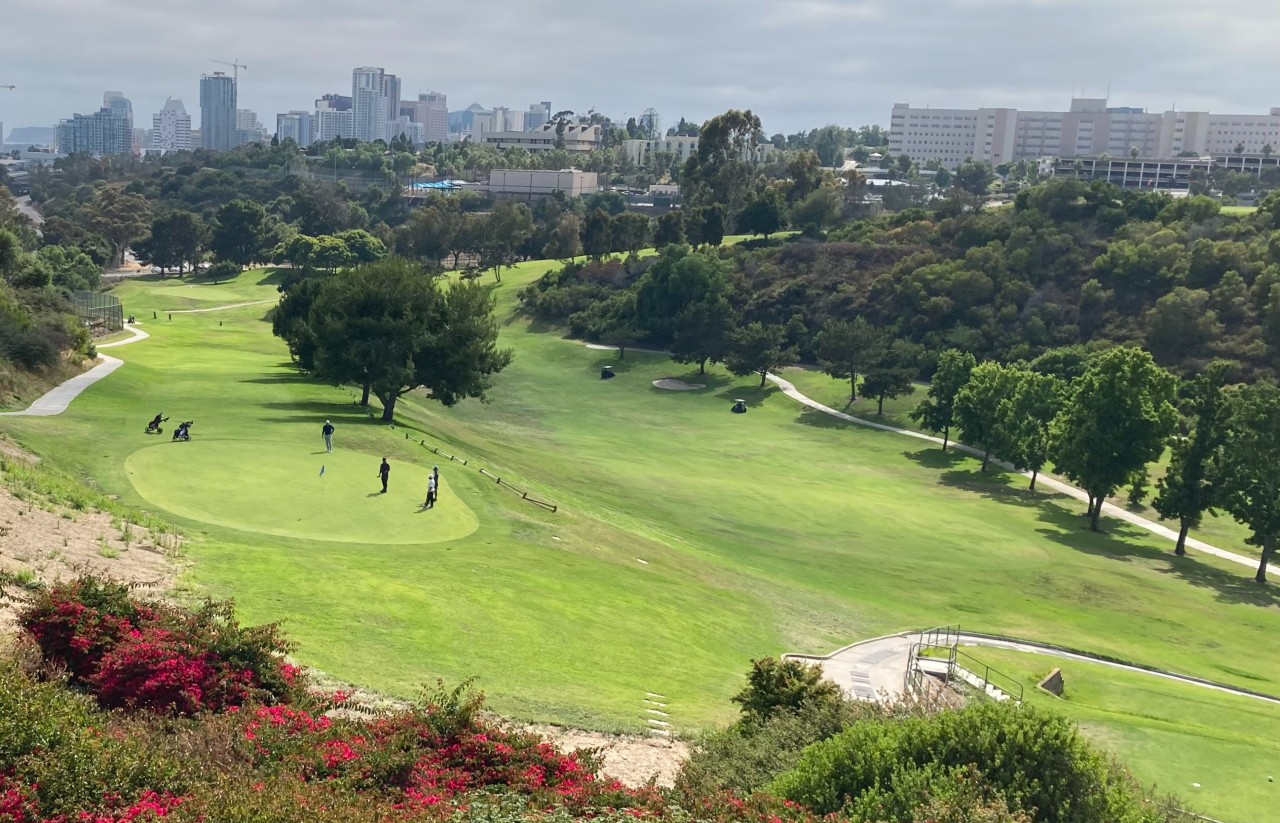 Balboa Golf Course. (File photo by JW August/Times of San Diego)
Balboa Golf Course. (File photo by JW August/Times of San Diego)
San Diego’s municipal golf courses are handling an increasing number of players — so much so that the city is contemplating a new advance booking system for the Balboa and Mission Bay courses, similar to what is already in place at Torrey Pines.
Tim Graham, the assistant deputy director of the city’s golf division told a recent meeting of the San Diego Municipal Golf Committee that the “growth has been nothing short of phenomenal.”
The city ended the 2025 fiscal year on June 30 with a preliminary total of 427,508 rounds, surpassing last year’s record by more than 7,500.
What this means in dollars for the cash-strapped city of San Diego is another record year in revenue as well: more than $41.4 million, of which $13.4 million will be used for golf course capital projects.
“This number is especially impressive,” Graham said, “when you also consider the division closed public play for an additional week to host the Genesis Invitational in February” at Torrey Pines after the Los Angeles wildfires.
An ongoing issue as a result of the increasing number of players is that “accessing tee times has become more challenging in both Balboa Park and Mission Bay due to overwhelming demand,” explained Graham.
To meet the demand, the golf division is proposing changing the existing advance reservation program to make it similar to the one used at Torrey Pines.
The department wants to offer a $10 non-refundable advance booking fee per player eight to 90 days in advance for both the Balboa Park and Mission Bay courses. Players would be able to book two times up to 90 days in advance. Reservations made within seven days would remain free across all three city-operated courses.
Stephen Michael Shushan, a public member of the golf committee, said the fee proposal “sounds like it’s just additional revenue for the city and additional cost for the golfers.” He wondered if there was “any consideration given to mirroring what LA does” where instead of a non-refundable $10 fee to book a tee time, the fee is applied to the cost of the round if the golfer ends up playing. If the golfer cancels, it’s non-refundable
Shushan added, “It would still accomplish its purpose if it were refundable, without costing golfers any more”.
Graham concluded his presentation by saying that “with the expansion of the program, the division is confident it can help address a number of access concerns recently raised by customers.” And he promised that the advanced reservation fee will also discourage the use of computer “bot” technology.
There have been widespread acknowledgement by golfing experts from Southern California and nationally that computer bots were being used to schedule tee times and then resold at a profit. It seemed to explain the access complaints by some of the 41,000 golfers who paid for city golf cards, but were unable to book a preferred tee time. The city denies there was any bot activity.
The city’s golf course reservation system is managed by foreUP but the contract has expired and the city has put out a request for proposal for a new online system. It should be noted that foreUP agreed with other experts that bots were infiltrating reservation systems. The golf committee meeting did reveal that a new software provider has been chosen, but it will not be announced until the City Council approves a contract.
Meanwhile, there are upcoming capital projects planned for the city courses, including a restaurant for Mission Bay opening in October, and both major roof repair and reopening of the fire-damaged pro shop at Balboa. Torrey Pines has a new clubhouse and maintenance facility in the early planning stage.
The Municipal Golf Course Committee meeting was chaired by Marty Block, the former state senator and assemblyman whose golf committee acts in an advisory capacity for golf operations at city-owned courses. The attendees covered a wide range of related topics, including turf management for the courses.
Golf course manager Matty Reyes told the board a plan is in the works to create a “point of sale” kiosk where players can check themselves in with a digital ID card that can be loaded into the player’s cell phone.
Currently the city issues plastic identification cards for $25 a year which are required for the resident rate.







